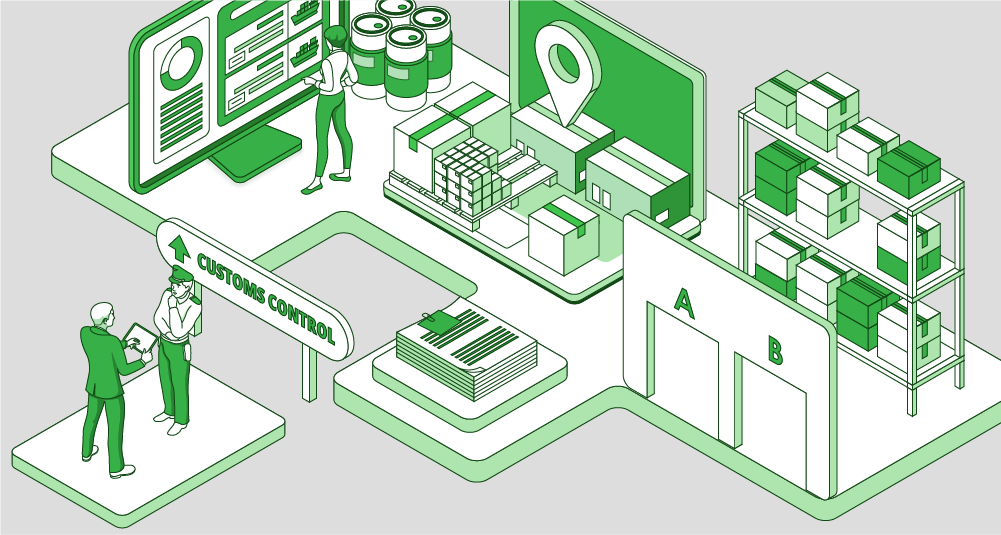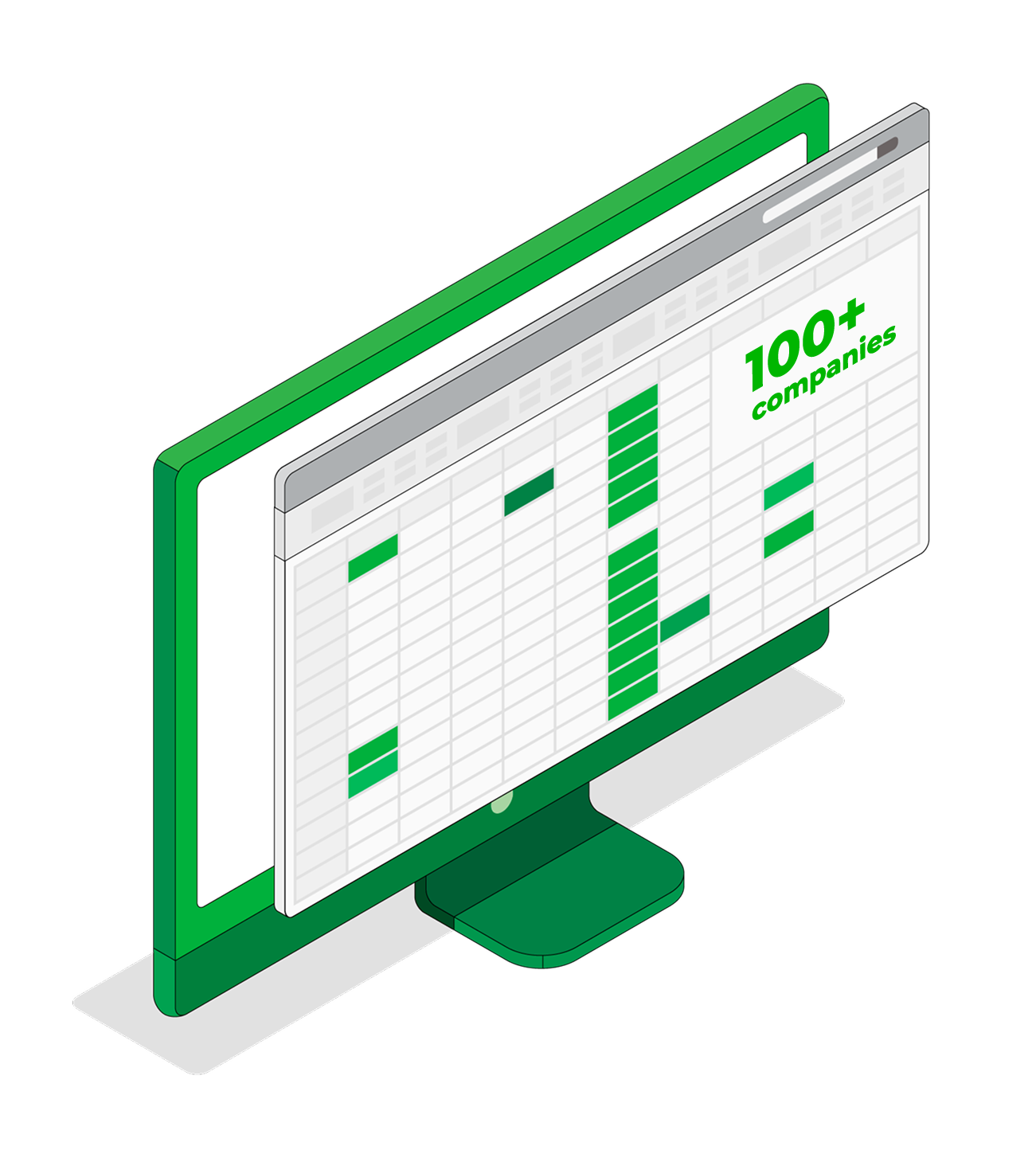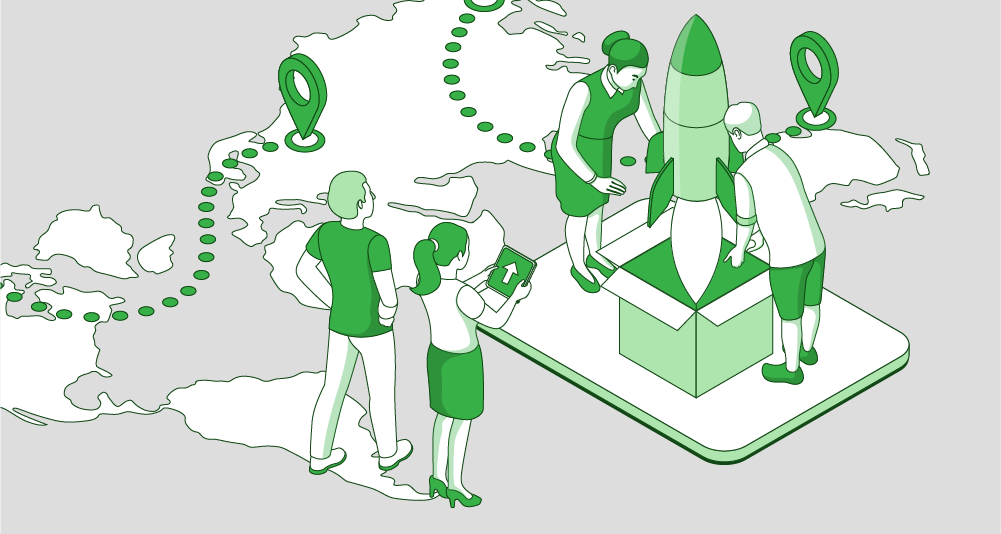We all remember the days when supply chains felt like an intricate maze. Well, we were constantly battling unpredictable delays, soaring costs, and information silos. Those challenges, once the bane of logistics managers, are now meeting their match. We're witnessing a profound transformation, with AI models at the forefront of a supply chain, logistics, and transportation management revolution. It isn't just about incremental improvements for your operations. We know for 100% it's all about fundamentally reshaping how goods move across the globe.
The logistics, supply chain, and transportation management sectors are rapidly transforming, with AI at the forefront of this revolution. Different AI features empower businesses with more accurate predictions, optimized processes, and data-driven decisions, enhancing performance, customer satisfaction, and cost reductions. AI adoption in supply chain and logistics is set to skyrocket from 15% in 2022 to 73% by 2027. Looking at the data provided by Kearney, the leading management consulting firm, we may state that the overall market is projected to reach $23.1 billion by 2032 from $3 billion in 2022.
Generative AI models are a very powerful subset. It further accelerates this shift by synthesizing data and generating new content to automate solutions. With technological advancements hand in hand, we can streamline external data and get market intelligence. It all helps logistics managers craft tailored strategies, and what's also crucial is that it helps free human intelligence for strategic thinking. The generative AI in the logistics market is expected to surge from $0.5 billion in 2022 to $18.9 billion by 2032.
This article unveils the Top 10 AI Agents revolutionizing these critical sectors. Our downloadable list of over 100 agents is also provided, which we've compiled to save you 20+ hours. We're offering a comprehensive resource for leveraging AI in your operations.
Top 10 AI agents for logistics, transportation, and supply chain
Using AI, the industry can finally leave behind fragmented, reactive approaches. The speed and efficiency that come from AI agents, analyzing disparate supply chain data and tracking performance in real-time. It truly frees up human intelligence for high-quality strategic thinking and decision-making. Moreover, it supports tracking down market trends and gathering data that provides structured summaries for warehouse managers.
Below, check out our top 10 list of companies transforming logistics from a constant battle against challenges to a world of unprecedented efficiency and innovation.
1. Ampcome
Ampcome Inc. is revolutionizing logistics with its Ampcome AI logistics agents, a sophisticated multi-agent system designed to inject unparalleled automation, predictive power, and optimization into modern supply chains. This enterprise-ready solution harnesses advanced technologies like AI and machine learning models, natural language processing (NLP), computer vision, reinforcement learning, and multi-agent AI systems. It's built for level 4 partial autonomy, learning, and adapting to improve operations continuously.
The platform boasts seamless integration capabilities with existing systems, including ERP, TMS, WMS, APIs, and IoT devices, offering a flexible SaaS, API-first, no-code, and low-code approach.
Website: https://www.ampcome.com

2. Einride Saga
Einride Saga is a groundbreaking intelligent platform redefining sustainable and autonomous freight transportation. This hierarchical, predictive, distributed learning system leverages advanced AI and machine learning, deep learning, digital twins, and IoT integration to optimize fleet management and multimodal logistics. Operating at a level 4 high degree of autonomy with human oversight, it seamlessly integrates with existing ERP, TMS, WMS, and IoT devices through a SaaS, API-first, cloud-based platform. Key capabilities include intelligent route and load optimization, real-time monitoring, and smart charging management, all designed to deliver remarkable efficiency and environmental benefits.
Einride Saga drives substantial results for its users, achieving up to 95% reduction in carbon emissions, 99.7% delivery accuracy, 65% reduction in driver idle time, and decreased fuel and maintenance costs. This enterprise-ready solution is actively deployed by major companies like GE Appliances, Maersk, PepsiCo, Mars, and Brau Union across the USA, Europe, the Middle East, and Asia.
Website: https://www.einride.tech
3. Kargo Technologies
Kargo Technologies, operating as PT Kargo Technologies Indonesia, offers a cutting-edge platform to revolutionize freight management and supply chains through predictive, learning, and distributed AI capabilities. By leveraging advanced technologies such as machine learning, predictive analytics, NLP, digital twins, and IoT integration, Kargo Technologies provides a comprehensive suite of tools for intelligent logistics for the end customer. The platform is built for seamless integration, supporting ERP systems, TMS, WMS, API-first architecture, EDI support, and IoT device integration, all delivered as a SaaS or cloud-based platform.
Kargo Technologies delivers substantial benefits, including reduced logistics costs, increased delivery accuracy, enhanced supply chain visibility, decreased delivery times, and improved supply chain resilience. Kargo Technologies is a leader in transforming logistics for the Indonesian market.
Website: https://www.kargo.tech
4. Osa Commerce
Osa Commerce, Inc. provides a unified, AI-driven cloud solution to streamline and optimize the entire supply chain, from eCommerce to last-mile delivery and 3PL billing. Osa Commerce stands out with its robust integration capabilities, featuring an API-first architecture with over 440 pre-configured integrations for major ERPs like SAP, Oracle, NetSuite, Microsoft Dynamics, eCommerce platforms like Amazon, Shopify, Walmart, Magento, WMS, and TMS systems.
Osa Commerce delivers substantial operational improvements and financial benefits, including a 30% increase in revenue, a 15% reduction in logistics costs, a 40% decrease in inventory holding costs, a 25% improvement in order fulfillment accuracy, and a 3-4x acceleration in warehouse processes.
Website: https://osacommerce.com

5. Shippeo
Shippeo is a leading real-time transportation visibility platform, empowering businesses with predictive and reactive AI features to optimize their supply chain management. By leveraging machine learning (ML), big data analytics, and predictive analytics, Shippeo provides unparalleled insights into cargo movements. The platform seamlessly integrates with existing ERP systems, TMS, APIs, and IoT devices or telematics systems, offering a robust SaaS, cloud-based solution.
Shippeo's core functionalities include first-time cargo tracking, highly accurate ETA forecasting up to 95% accuracy, and proactive exception and alert management. It also offers comprehensive carrier performance analysis, helping businesses make data-driven decisions to enhance operational efficiency. Logistics service providers utilizing Shippeo have reported significant benefits, such as a 30% reduction in delays and improved customer satisfaction.
Website: https://www.shippeo.com
6. 3SC Solutions
SS Supply Chain Solutions Pvt. Ltd., operating as 3SC Solutions, offers a powerful suite of hierarchical, predictive, distributed, and learning AI platforms created to transform supply chain management, logistics, and transportation. With a focus on comprehensive solutions, 3SC leverages AI and machine learning, natural language processing, and generative AI, including their GAURI chatbot, etc. Their platforms, including SCAI, TMS, OMS, and generative AI for risk management (GAURI), seamlessly integrate with existing business systems, API-first architecture, EDI support, and IoT devices.
3SC Solutions delivers significant value, evidenced by improved forecast accuracy, reduced transportation costs, enhanced supply chain visibility, decreased delivery times, and increased supply chain resilience. Their innovative GAURI chatbot enhances risk management by providing actionable insights and responses to complex supply chain queries. This enterprise-ready solution is widely adopted across India, Europe, Southeast Asia, the Middle East, and the USA.
Website: https://3scsolution.com
7. Locus DispatchIQ
Locus DispatchIQ, developed by Locus, is a leading predictive and learning AI platform specializing in delivery route optimization, last-mile management, and eCommerce logistics. This robust solution integrates seamlessly with existing ERP systems, TMS, WMS, APIs, mobile applications for drivers, and IoT devices and GPS trackers, delivered as a SaaS, cloud-based platform.
Locus DispatchIQ's core functionalities include automatic route planning considering diverse constraints, highly accurate delivery time forecasting ETA up to 95%, and exception management with real-time alerts. Companies leveraging Locus DispatchIQ experience significant benefits, such as up to 15% reduction in shipping costs, a 25% increase in shipping productivity, and a 10% reduction in returns. Locus DispatchIQ empowers businesses to achieve unparalleled efficiency and accuracy in their delivery operations.
Website: https://locus.sh
Need help with AI agent development?
Learn how we can boost your logistics processes
Explore more8. Orkestra
Orkestra Supply Chain Solutions Inc. provides a powerful hierarchical, predictive, distributed, and learning platform for comprehensive supply chain orchestration and 4PL management. Developed for industries ranging from manufacturing and retail to automotive and food & beverage, Orkestra leverages ML, real-time analytics, predictive modeling, IoT integration, and blockchain via a Youredi partnership, and other tools.
Orkestra's core capabilities include intelligent order and shipment management, real-time visibility, disruption detection, and predictive analytics, all contributing to superior supply chain control. Clients like DBW have achieved full visibility and significant cost savings within 8 weeks, revolutionizing their logistics from factories in Europe and Mexico to customers in North America. Orkestra is the choice for global supply chain leaders seeking unparalleled orchestration and control.
Website: https://www.orkestrascs.com
9. Movement AI
Movement AI, developed by project44, is a cutting-edge predictive, reactive, and distributed AI solution created to elevate supply chain management and transportation monitoring to new heights. Leveraging advanced AI and machine learning, big data analysis, natural language processing, and generative AI, including movement GPT, this platform offers unparalleled capabilities for predicting ETAs and proactively managing exceptions.
Movement AI empowers businesses to predict and prevent supply chain disruptions, automatically enhance carrier data quality, and gain profound insights through an interactive MO AI assistant for data analysis. It optimizes purchasing, streamlines return management, and facilitates real-time task and exception handling. Customers utilizing Movement AI experience significant operational improvements, including a remarkable 40% reduction in breach costs, a 50% decrease in time to analyze data, and a 90% reduction in data analysis time.
Website: https://www.project44.com/platform
10. Rippey AI
Rippey AI, Inc. delivers a powerful hierarchical, predictive, distributed, and learning AI platform specializing in automating mission-critical logistics and supply chain processes, particularly focusing on document automation, invoice and payment processing, and customer support. Rippey AI excels at eliminating manual, repetitive tasks and integrates with most business systems.
Rippey AI's core capabilities include automating document and email processing, quote generation and handling, shipment tracking, invoice and payment automation, and integration with PayCargo. It also offers chatbot integrations for platforms like Slack and Microsoft Teams to streamline customer service. The benefits for clients are substantial, like response times reduced to 30 seconds and operational cost savings of up to 80%. Rippey AI is transforming back-office logistics into highly efficient, automated operations.
Website: https://rippey.ai
✅ Download the full list here

Unlocking the future of logistics with the rise of AI agents
Artificial intelligence is transforming logistics by enabling smarter, faster, and more adaptive decision-making. Among the most impactful innovations are AI agents, autonomous AI software systems that perceive their environment, analyze data, make decisions, and act with minimal human intervention.
In logistics, AI agents handle complex processes such as inventory management, route planning, demand forecasting, and customer service. Unlike traditional automation, they learn and adapt continuously, optimizing operations dynamically and responding effectively to delays, demand surges, or supply interruptions.
AI agents take various forms, each suited for specific roles:
Reactive agents instantly respond to current inputs without relying on past data.
Model-based agents use internal models to make decisions informed by previous states.
Goal-based agents act strategically to achieve predefined objectives.
Utility-based agents optimize decisions by maximizing defined utility functions.
Learning agents continuously improve by learning from new data and experiences.
Distributed agents collaborate across tasks and locations to manage complex supply chains.
Autonomous physical agents like robots, drones, and automated vehicles physically execute logistics tasks.
The demand for AI agents is escalating rapidly. From a market value of roughly $5.1 billion in 2024, the sector is projected to jump to $47.1 billion by 2030. This explosive growth is driven by the pressing need for real-time responsiveness, enhanced automation, and superior customer service in global logistics.
These agents are revolutionizing multiple functions. In warehouses, they optimize inventory layout and workflow, accelerating fulfillment and lowering errors. For forecast demand, AI agents analyze data patterns and external factors to align supply and demand more accurately. Transportation benefits from fast container shipping rates, dynamic route planning that cuts transit times, and fuel use. Distributed agents ensure smooth coordination across suppliers, manufacturers, and customers, preventing bottlenecks. Customer service improves with chatbots and digital AI assistants offering instant, personalized support.
Integrating AI agents delivers significant benefits. Automation and optimized resource management reduce operational costs. Faster, data-driven decision-making minimizes errors and increases efficiency. Customers receive timely updates and tailored services, boosting satisfaction. Moreover, AI agents provide adaptability in the face of fluctuating demands and unexpected disruptions, a critical advantage in today's volatile markets.
Challenges remain, including the high initial costs of deploying AI agents at scale, reliance on accurate and accessible data, cybersecurity risks, and the complexity of integrating new systems with existing infrastructure.
Looking forward, AI agents will become more capable through integration with emerging technologies. The Internet of Things (IoT) will supply richer, real-time data from connected devices to enhance agent awareness. Autonomous transport solutions like drones and robots will expand physical automation, particularly for last-mile delivery and warehouse operations. Personalization will further improve as AI agents tailor services to individual customer preferences. Importantly, self-learning mechanisms will continually enhance agent performance, making logistics more resilient, efficient, and flexible.

Overcoming supply chain challenges with AI agents for smarter logistics
The logistics, transportation, and supply chain industry faces complex challenges, leaving many businesses reactive. Disconnected systems like warehouse management (WMS), transportation management (TMS), and enterprise resource planning (ERP) create fragmented operations. Manual order processing and slow workflows cause bottlenecks, errors, and longer lead times, hurting accuracy and customer satisfaction.
Limited visibility across operations hinders proactive planning. Logistics teams often react to problems instead of preventing them, making long-term planning difficult. Adopting AI agent-driven solutions can enhance coordination, streamline workflows, and enable data-driven decisions.
Key market forces worsen these challenges:
Rising costs. US transportation costs rose 19.6% in 2022; commercial vehicle prices increased 6.5% in 2023; gas prices peaked at 31.2% in 2022.
Worker shortage. A shortage of 78,000 truck drivers in 2022 hampers operations.
Shipping delays. Events like the Dec 2023 Red Sea attacks added 10 days to Asian-European transit times.
Warehouse costs. US warehouse rents surged 18% in 2022, increasing pressure to optimize space and inventory levels.
Sustainability. Logistics contributes 8-11% of global greenhouse gases, with stricter carbon emissions regulations.
Tracking losses. 10-40% of supply chain assets are lost annually due to outdated monitoring.
Communication gaps. Staff shortages and fragmented shipment info cost firms around $62 million yearly.
Regulatory challenges. Laws like HOS, the Ocean Shipping Reform Act, and IMO 2023 complicate compliance.
Off-the-shelf tools or free AI tools often fail to meet unique needs, increasing demand for custom logistics software.
AI agents play a vital role in overcoming these issues. They improve forecast demand, route optimization, automate repetitive specific tasks, reduce human error, streamline workflows, and suggest other AI features. Most importantly, AI agents deliver real-time insights, shifting logistics from reactive fixes to proactive strategic planning.
Are you in search of a reliable tech partner?
Adexin can help with advanced logistics solutions
Contact usFinal takeaway
The tour through the capabilities of these leading AI agents reveals a clear path forward for logistics, transportation, and supply chain management. The era of disconnected systems, manual errors, and reactive management is rapidly ending, as we have explored, traditional and generative AI tools are not merely incremental improvements but fundamental shifts that offer unprecedented solutions to longstanding challenges such as rising transportation costs and many more issues.
Discover the extensive capabilities of these top AI tools for logistics and unlock the full potential of your logistics network. Download our exclusive list of more than 100 AI agents today for an even deeper dive into the vast landscape of AI solutions.
Take the first step toward an optimized, resilient, and future-proof supply chain. Adexin has created RatesAgent.AI, an AI agent designed for logistics teams to instantly compare rates, optimize shipments, and streamline supply chain decisions. We're always supporting your journey to achieving AI-powered outcomes with cutting-edge algorithms.

